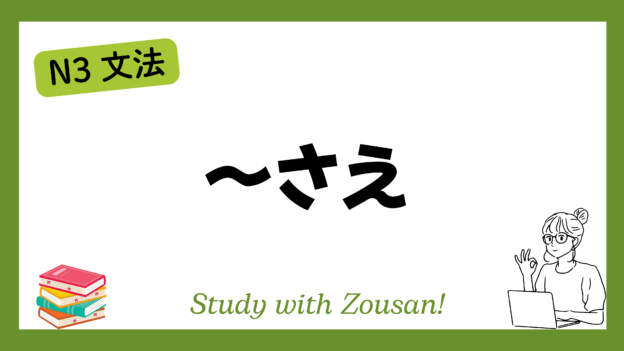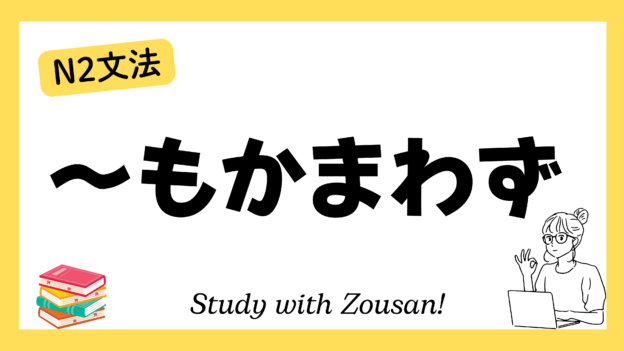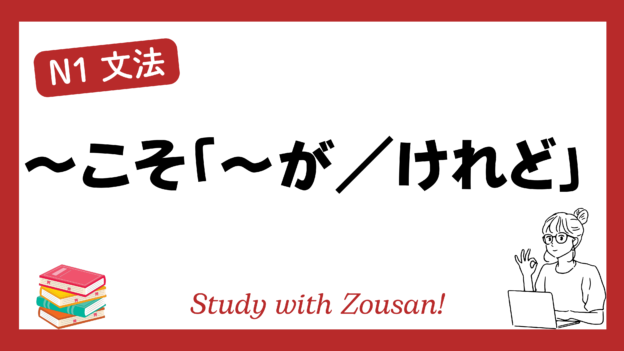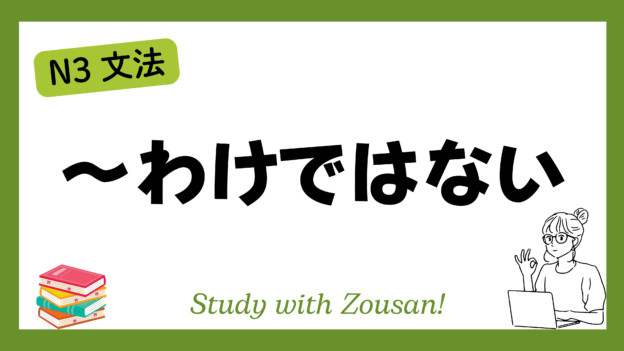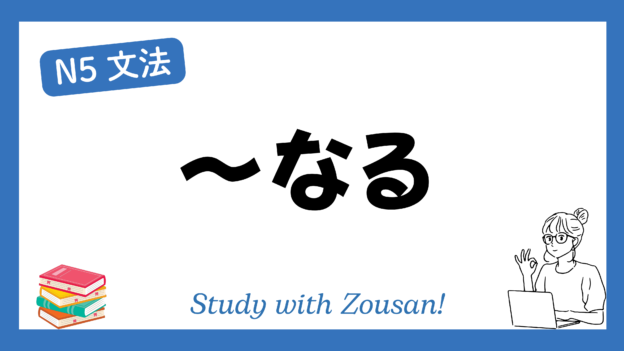N3文法:~さえ
Meaning: “Even…”, “As long as…”, “If only…”
“~さえ” is used to emphasize the minimal requirement or condition necessary for something to happen, or to indicate something unexpected or extreme. It can be used to highlight that something is so basic that it is surprising or unexpected, and also to express “if only” in conditional phrases.
※Note: Depending on the context, “~さえ” can emphasize both simple, essential conditions and surprising or extreme situations.
Structure:
| Noun + | (で)さえ(も) |
Example:
-
-
-
🌟 水さえあれば、生きていける。
(みず さえ あれば、いきていける。)
As long as we have water, we can survive. -
🌟 彼は日本語さえ話せない。
(かれ は にほんご さえ はなせない。)
He can’t even speak Japanese. -
🌟 彼女は忙しくて、食事をする時間さえない。
(かのじょ は いそがしくて、しょくじ を する じかん さえ ない。)
She’s so busy that she doesn’t even have time to eat. -
🌟 この問題は先生でさえ解けなかった。
(この もんだい は せんせい で さえ とけなかった。)
Even the teacher couldn’t solve this problem. -
🌟 君さえいれば、僕は幸せだ。
(きみ さえ いれば、ぼく は しあわせ だ。)
As long as you are here, I am happy. -
🌟 ペンさえあれば、このテストは解ける。
(ペン さえ あれば、この テスト は とける。)
As long as I have a pen, I can take this test. -
🌟 彼は挨拶さえしなかった。
(かれ は あいさつ さえ しなかった。)
He didn’t even say hello. -
🌟 雨が降っていて、外に出ることさえできなかった。
(あめ が ふっていて、そと に でる こと さえ できなかった。)
It was raining, so I couldn’t even go outside. -
🌟 彼女は涙さえ見せなかった。
(かのじょ は なみだ さえ みせなかった。)
She didn’t even show any tears. -
🌟 寝る時間さえないほど忙しい。
(ねる じかん さえ ない ほど いそがしい。)
I’m so busy that I don’t even have time to sleep.
-
-



